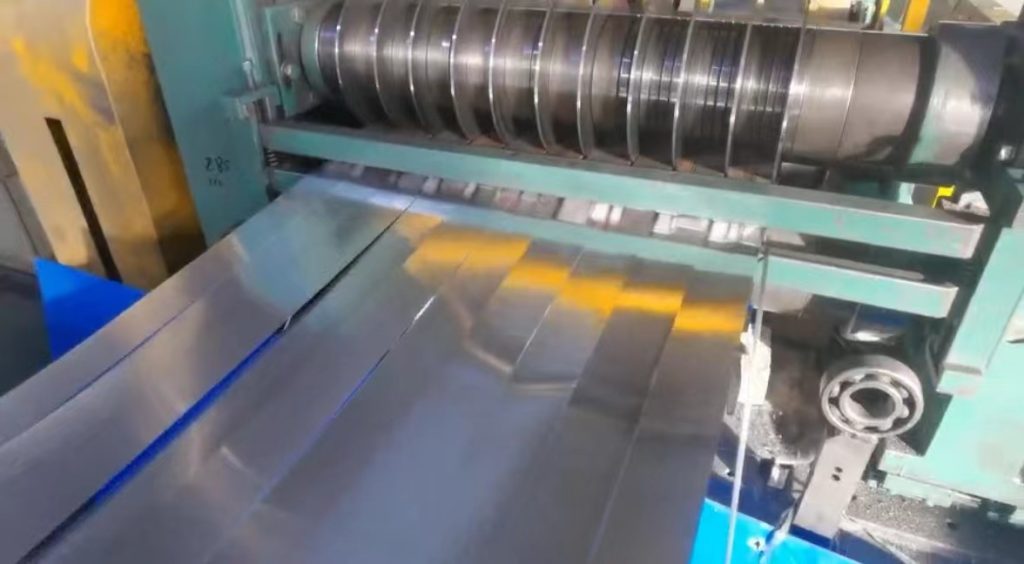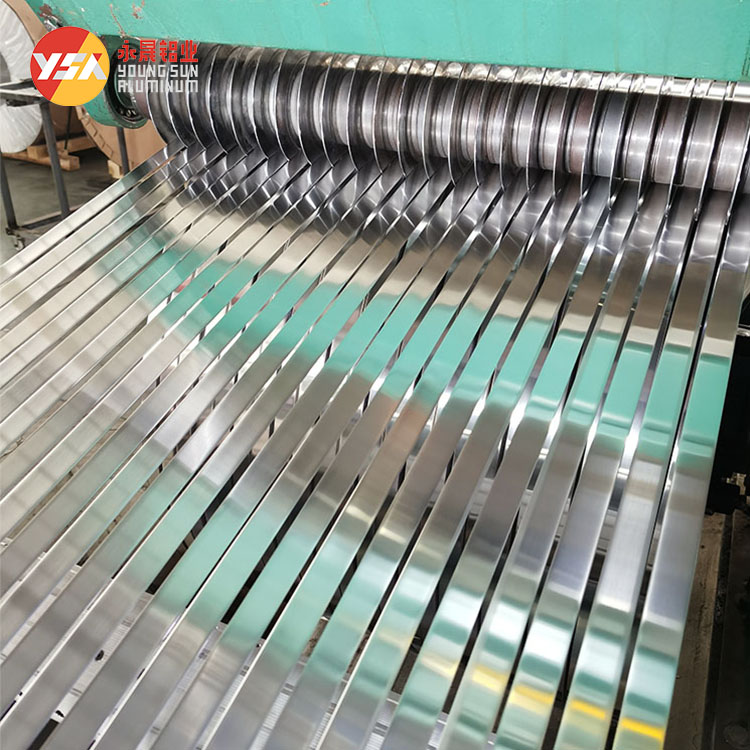Aluminum foil strip is widely used in packaging, electronics, and cable industries, and its quality directly impacts the performance and usability of the final product. When slitting aluminum foil strip, it is essential to follow specific precautions to ensure a smooth process and maintain product quality. Here are the key considerations for slitting aluminum foil strip:
Choosing the Right Slitting Equipment
There are various types of slitting equipment available, including shear slitting machines and rotary slitting machines. When selecting slitting equipment, consider the thickness, width, and slitting requirements of the aluminum foil strip. Ensure the equipment has good stability and precision to achieve a high-quality slit.

Adjusting Equipment Parameters
Proper adjustment of equipment parameters is crucial for slitting quality. Key adjustments include:
Tension Control: Maintain appropriate tension during the slitting process to prevent the aluminum foil strip from wrinkling or breaking. Both excessive and insufficient tension can affect slitting quality, so adjustments should be made based on the characteristics of the aluminum foil strip.
Blade Spacing: Adjust the spacing of the slitting blades according to the thickness and width of the aluminum foil strip to ensure clean and burr-free cuts.
Speed Control: Slitting speed should be moderate. Excessive speed can lead to uneven cuts, while slow speed can affect production efficiency.
Ensuring the Quality of Aluminum Foil strip
Before slitting, inspect the aluminum foil strip to ensure it is free from noticeable scratches, creases, contaminants, or other defects. Check the thickness for uniformity and inspect for any signs of oxidation or corrosion. Only high-quality aluminum foil strip should be slit to ensure the quality of the final product.
Maintaining a Clean Slitting Environment
The cleanliness of the slitting environment significantly impacts the quality of the aluminum foil strip. Keep the slitting workshop clean to prevent dust, oil, and other contaminants from adhering to the strip surface. Additionally, avoid direct contact between the strip and operators to prevent fingerprints and other contaminants.
Observing Safety Precautions
Strictly follow safety procedures during the slitting process to ensure safe operations. Key points include:
Wearing Protective Gear: Operators should wear gloves, safety glasses, and other protective equipment to prevent cuts from blades or foil edges.
Following Standard Operating Procedures: Operators should be familiar with the slitting equipment’s operation and adhere to standard procedures to prevent equipment malfunctions or accidents.
Regular Equipment Maintenance: Perform regular maintenance on the slitting equipment to ensure it is in good working condition and to avoid quality issues due to equipment failures.

Handling Slitting Waste
The slitting process generates waste materials that should be promptly managed to avoid clutter in the production environment. Depending on the situation, waste can be recycled or disposed of appropriately to minimize environmental impact.
Conclusion
Slitting aluminum foil strip requires technical expertise and careful attention to detail. By selecting appropriate equipment, adjusting parameters correctly, ensuring the quality of the aluminum foil strip, maintaining a clean environment, observing safety protocols, and handling waste properly, the efficiency and quality of the slitting process can be significantly improved. This ensures that the final product meets the required standards and fulfills various application needs effectively.
